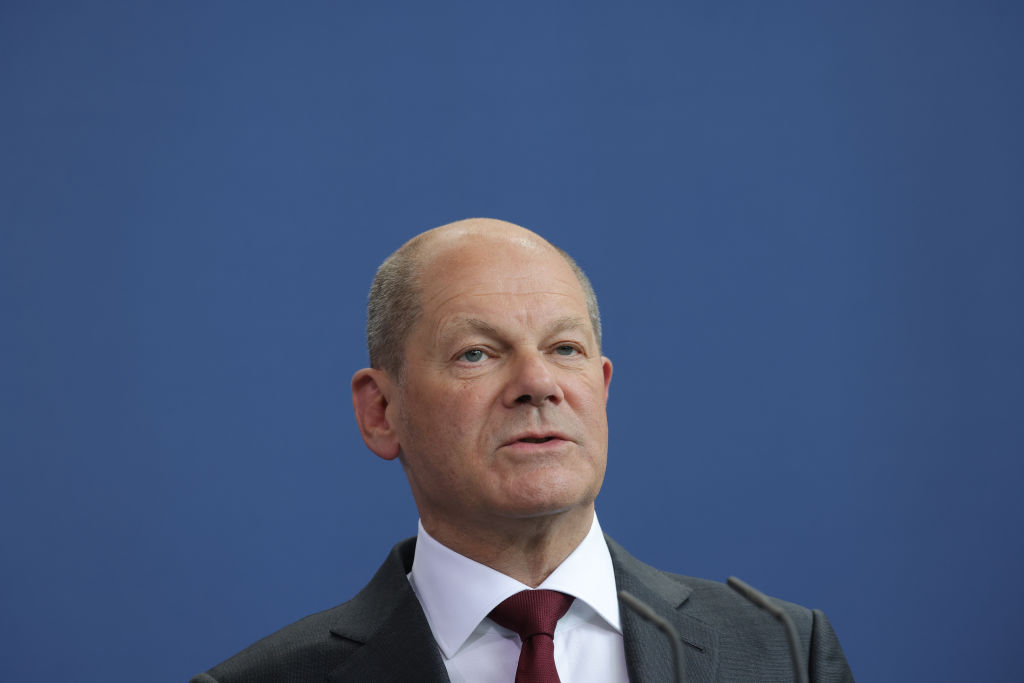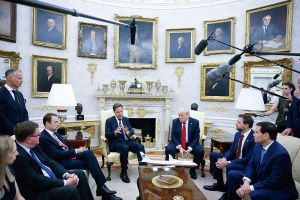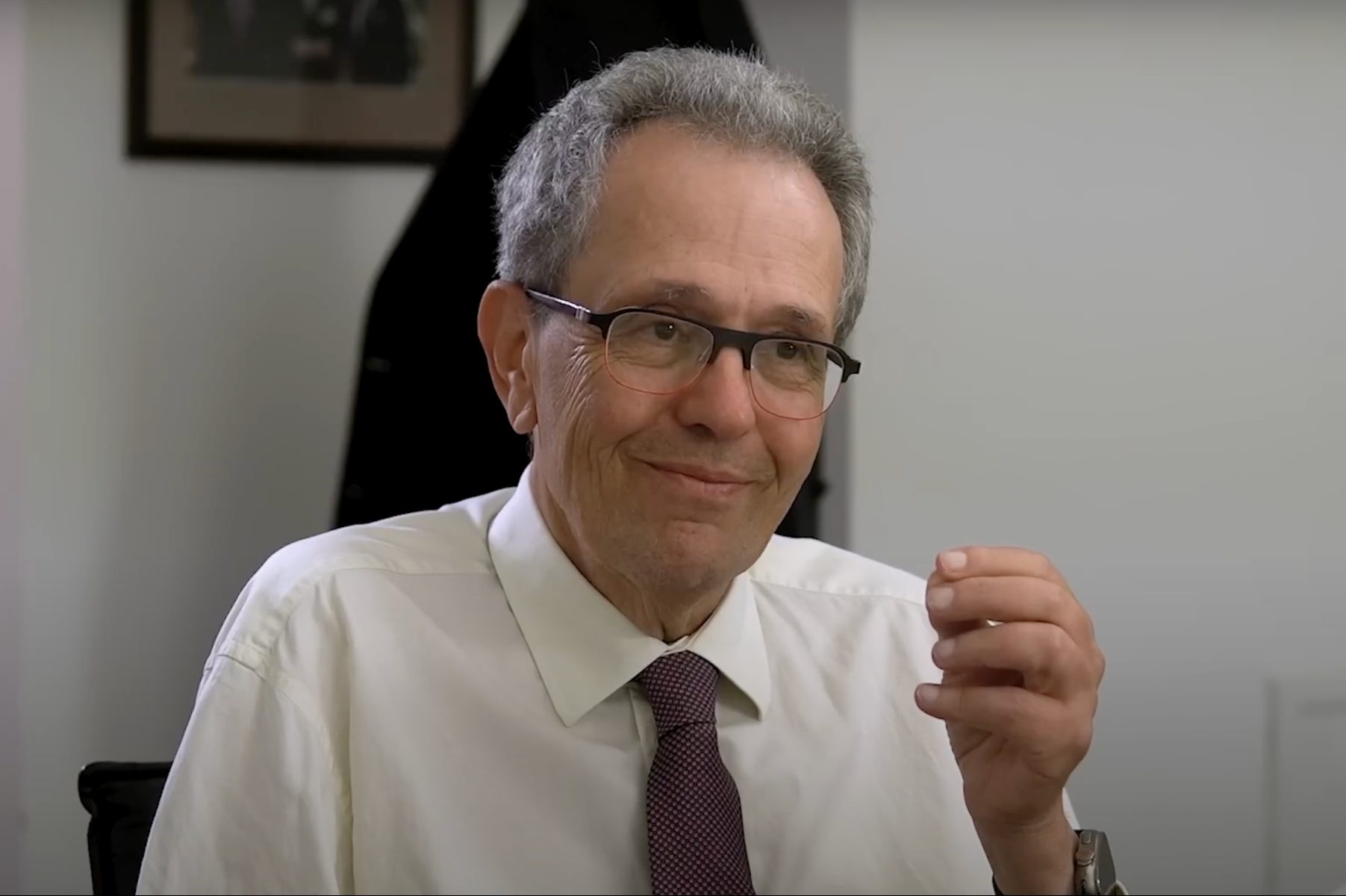Bafflement is not quite the right word. Instead, Ukrainian officials and their allies now see Germany through a confused form of anger. Things had started out well. Within days of Russia’s invasion of Ukraine in late February, and in seeming response to international condemnation, Germany had done the following, against type:
It had halted the Nord Stream 2 pipeline, placing it more thoroughly in the palm of Russian fossil fuel suppliers; it had committed — for the first time since reunification — to spend more than two percent of its giant GDP on self-defense, per year, in perpetuity; and it had announced a 100 billion euro investment to rearm, beginning that instant.
The most moving speech of that special session of the Bundestag was from the finance minister, of the economically libertarian Free Democrats. Christian Lindner, a fiscal hawk, declared that although many might deplore these increases in spending on the grounds of economy, remaining unarmed in this new era of wars of aggression could be only a false economy. What use, he said, is a lean military budget if peace in Europe, and at home, is taken from us without our being able to object?
“The investments in the Bundeswehr,” he said, “should not prompt warnings against new debt. In truth, of course, these are loans that we will take out in the next few years, but in this world … they are investments in our freedom.”
The country, and the governing coalition, supported him.
Before this change of heart, Germany’s contribution to Ukraine’s defense was a shipment of a few thousand helmets. After Vladimir Putin’s invasion, the German Chancellor, Olaf Sholtz, said he would no longer hold up shipments of German weapons in the hands of other countries. They could be donated to the Ukrainian war effort. Joining them would be weapons fresh from German depots. It seemed like a sea change.
Many in America, in Europe and in Ukraine, were surprised and delighted.
German policy had since the end of the Cold War coasted by on a species of smug mercantilism. While increasing yearly its dependence on Russia, the longstanding government of Angela Merkel had declared to others that there was no reason to worry, and when Russia invaded Ukraine for the first time in 2014, Germany told the rest of the world — and the Ukrainians — to stop being such babies.
Germany happily traded with a genocidal, imperial China on the ignorant and patronizing basis that through trade, China could be taught how to behave in the modern world (and could make a good number of Germans rich and fat on the proceeds).
The shock of Putin’s betrayal seemed, finally, to snap them out of it. All to the good. Some ministers were making themselves known. Annalena Baerbock, the new Green foreign minister, campaigned as an opponent of Chinese and Russian tyranny. Robert Habeck, the Green vice-chancellor, is widely admired by the Europeans and Ukrainians. He is spearheading the torturous business of disentangling Germany’s grid from Russian gas and oil.
And yet, as the war ends its first hundred days, German weapons deliveries to Ukraine have very visibly failed to materialize. For more than a month, the delivery of fifty Flakpanzer Gepard self-prepared anti-air systems has been authorized by Berlin. They have not arrived. Nor have the seven 155mm howitzers of German manufacture which have been promised. No German tanks, long a subject of Ukrainian requests and promises from other countries, are on the way.
The Germans claimed the Ukrainians were incapable of using those tanks without extensive training, before silently abandoning that tack. Then they claimed there were no tanks to spare, before being told there were in fact quite a few lying in wait, ready to be sent straight out. About a hundred Mader infantry fighting vehicles could also be sent, one coalition legislator confirmed to Politico, if only the government would give the word.
Germany is one of the world’s largest arms exporters. But it bows to no one in its ability to sit prissily upon its hands when contentious people request some of those arms.
Documents leaked to the Welt newspaper have shown that deliveries from Berlin to Kyiv have slowed to a crawl, and then a trickle — all of this deliberately. People even within the complacent, mercenary German bureaucracy have called it a betrayal.
One might wonder why this has happened. The change of heart was visible and public. So too were the promises of materiel.
But another dynamic has taken shape, too, as the war has gone on and as the original dose of adrenaline has worn off. Rather like the long Cold War against Soviet tyranny, the danger of splits within the western alliance has re-emerged. And leading the disloyal faction are France’s president Emmanuel Macron and German chancellor Olaf Scholz.
Both Macron and Scholz talk frequently to Putin. They listen to his harangues and justifications, and presumably find themselves worn down into believing his threats. They vainly try to negotiate with him from a position not even of weakness, but of disengagement. They have nothing to bargain with, yet still reduce their contributions to the Ukrainian effort in some bizarre one-sided quid pro quo. Neither Macron nor Scholz, quite uncommonly, has made the increasingly customary pilgrimage to a Kyiv at war.
Ukrainians are confused by this, but they are starting to become angry. They see deep-seated German equivocation beginning to reassert itself. Poland’s President Duda has accused Germany of breaking its promises — something rather emblematic, when said by a Pole.
Perhaps Scholz considers himself a heroic peacemaker — perhaps a leader in outward-facing humility like Konrad Adenauer, or a diplomatic “honest broker” like Bismarck. But as his initiatives repeatedly come to nothing, and his promises go aggressively unfulfilled, many in Europe worry that the worst of the German character is once again rising to the fore. The detachment, the smugness, the ineffectual promises of impressing vague attitudinal change on sworn foes.
Perhaps, when Germany announced record military spending and an intention to use this new fork in history to rearm, it only meant to protect itself. A fortress Germany, just as aloof and serene as when it was helpless; and let the devil take the hindmost.

























